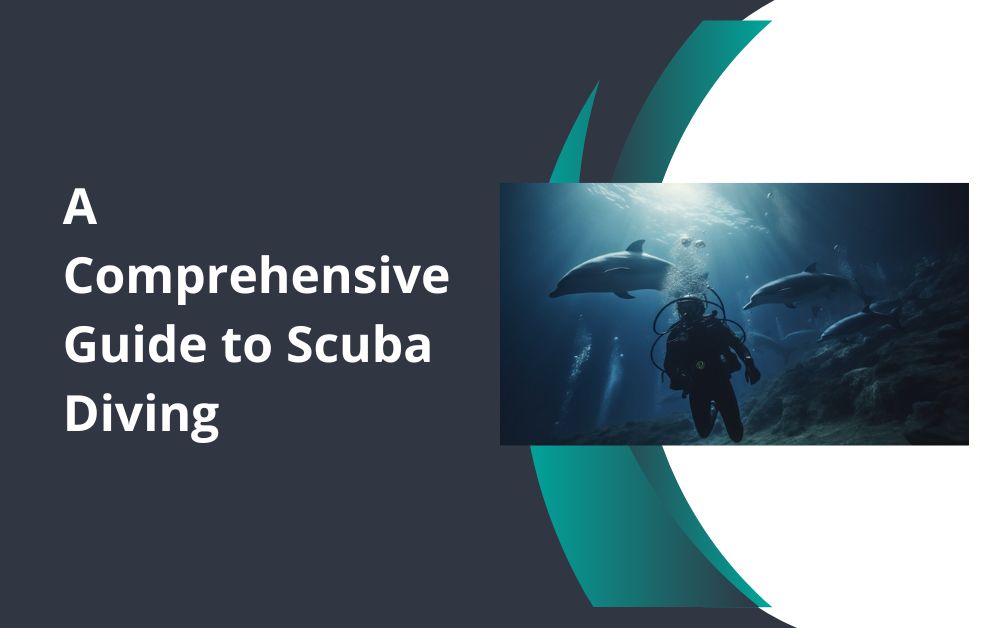Scuba diving is an exhilarating and fascinating activity that allows you to explore the underwater world. Whether you’re a beginner or an experienced diver, there’s always something new to discover beneath the waves. This comprehensive guide will take you through everything you need to know about scuba diving, from the basics to advanced techniques, ensuring a safe and enjoyable diving experience.
The Basics of Scuba Diving
What is Scuba Diving?
Scuba Diving in Fujairah involves using a self-contained underwater breathing apparatus (scuba) to breathe underwater. This equipment allows divers to explore the underwater environment for extended periods, offering an up-close look at marine life and underwater landscapes.
Why Scuba Dive?
- Adventure: Scuba diving offers a sense of adventure and exploration, taking you to places few people have been.
- Nature: It provides an opportunity to connect with nature and observe marine life in its natural habitat.
- Relaxation: Many find diving to be a relaxing and meditative experience, surrounded by the beauty and tranquility of the underwater world.
Getting Started with Scuba Diving
Certification and Training
Open Water Certification
To scuba dive safely, you need to get certified. The most common entry-level certification is the Open Water Diver certification. This course includes:
- Classroom Sessions: Learning the theory behind diving.
- Confined Water Dives: Practicing skills in a pool or shallow water.
- Open Water Dives: Applying skills in an open water environment under the supervision of an instructor.
Advanced Certifications
After getting your Open Water certification, you can pursue advanced certifications to dive deeper and explore more challenging environments. Examples include Advanced Open Water Diver, Rescue Diver, and various specialty courses like underwater photography or wreck diving.
Essential Scuba Diving Equipment
Mask and Snorkel
A well-fitting mask allows you to see clearly underwater, while a snorkel helps you breathe at the surface without using your air supply.
Wetsuit or Drysuit
Depending on the water temperature, you’ll need a wetsuit or drysuit to keep warm. Wetsuits are made of neoprene and provide insulation by trapping a thin layer of water against your skin, while drysuits keep you completely dry.
BCD (Buoyancy Control Device)
A BCD helps you control your buoyancy underwater. It has an inflatable bladder that you can fill with air to float or release air to sink.
Regulator
The regulator is the device that allows you to breathe from your tank. It reduces the high-pressure air from the tank to a breathable pressure and delivers it to your mouth through a mouthpiece.
Tank
Scuba tanks hold the compressed air that you’ll breathe underwater. They come in different sizes and materials, typically aluminum or steel.
Fins
Fins help you move efficiently through the water with minimal effort. Choose fins that fit comfortably and suit your diving style.
Safety Tips for Scuba Diving
Plan Your Dive
Always plan your dive with your buddy. Discuss your dive site, depth limits, and the duration of your dive. Make sure you have a clear plan for what to do in case of an emergency.
Check Your Equipment
Before each dive, inspect your equipment to ensure everything is in working order. Check your tank pressure, regulator function, and BCD inflation. Also, make sure your mask and fins are secure.
Monitor Your Air Supply
Regularly check your air supply during the dive. Communicate with your buddy to ensure you both have enough air to complete the dive safely and make a controlled ascent.
Ascend Slowly
To avoid decompression sickness, ascend slowly and make safety stops as needed. A common practice is to stop for three minutes at five meters (15 feet) before surfacing.
Popular Scuba Diving Destinations
Seabreacher,FUJAIRAH
The Seabreacher is one of the most famous diving locations in the world. With its vibrant coral reefs and diverse marine life, it offers a spectacular diving experience.
Red Sea, Egypt
The Red Sea is known for its clear waters, colorful reefs, and historic wrecks. Popular sites include the Blue Hole and the SS Thistlegorm wreck.
Maldives
The Maldives offers stunning underwater scenery, with abundant marine life, manta rays, and whale sharks. The warm waters and excellent visibility make it a diver’s paradise.
Bali, Indonesia
Bali’s diverse dive sites include coral reefs, wrecks, and even underwater temples. Sites like Tulamben and Nusa Penida are popular among divers for their rich marine biodiversity.
Advanced Scuba Diving Techniques

Wreck Diving
Wreck diving involves exploring sunken ships, airplanes, and other structures. It requires specialized training to ensure safety, as wrecks can be hazardous environments.
Cave Diving
Cave diving is one of the most challenging and rewarding types of diving. It involves exploring underwater caves and requires advanced skills and equipment due to the complex and confined spaces.
Deep Diving
Deep diving takes you beyond the standard recreational depth limit of 40 meters (130 feet). It requires advanced training to manage the increased risks associated with deeper dives, such as nitrogen narcosis and decompression sickness.
Environmental Awareness and Conservation
Protecting Marine Life
As divers, it’s important to protect the underwater environment. Avoid touching or disturbing marine life and be mindful of your fins to prevent damaging coral reefs.
Participate in Conservation Efforts
Get involved in conservation initiatives such as beach clean-ups, reef monitoring, and marine life surveys. Organizations like Project AWARE offer opportunities for divers to contribute to ocean conservation.
Conclusion
Scuba diving opens up a whole new world of adventure and discovery. Whether you’re just starting or looking to expand your skills, the underwater world has something to offer everyone. By getting the right training, using proper equipment, and following safety guidelines, you can enjoy the many benefits of scuba diving while helping to protect our precious marine environments. So dive in, explore the depths, and experience the wonders that lie beneath the surface.
Note :- To Read More Articles Visit on businessposting.
4o

